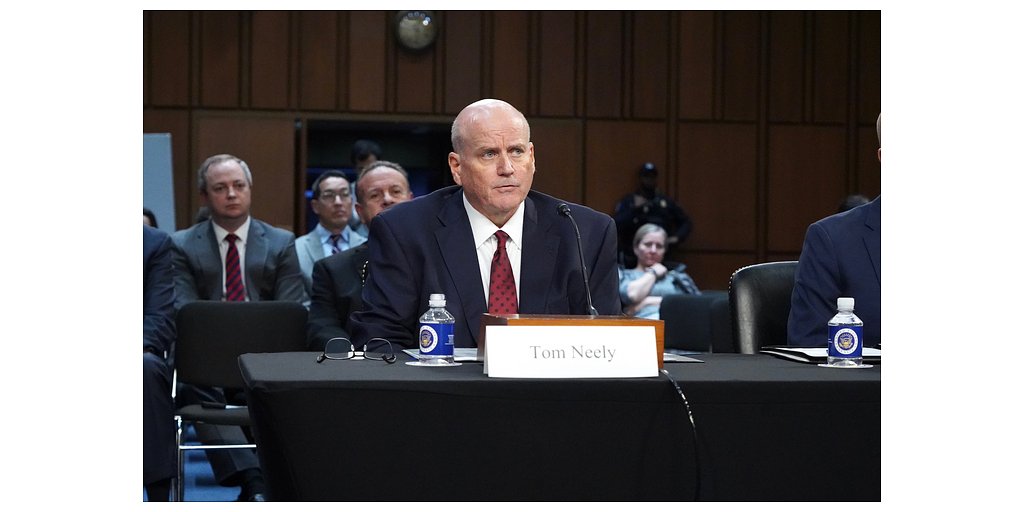
U.S. Drug Supply at Risk: Reshoring Efforts Face Cost and Competition Hurdles
A domestic generic drug maker's plea for policy changes highlights the fragility of the U.S. pharmaceutical supply chain, revealing reliance on foreign sources and a complex web of pricing challenges. Can reshoring efforts overcome economic realities?
U.S. Drug Supply at Risk: Reshoring Efforts Face Cost and Competition Hurdles
NEW YORK, NY – November 20, 2025
A growing chorus of industry leaders is sounding the alarm about the vulnerability of the U.S. pharmaceutical supply chain, with a particular focus on generic drug manufacturing. Recent testimony before the U.S. Senate Special Committee on Aging, coupled with escalating geopolitical tensions, is forcing a critical reevaluation of America’s reliance on foreign suppliers, particularly China. A Birmingham, Alabama-based manufacturer, Oxford Pharmaceuticals, has emerged as a key voice advocating for policy changes designed to bolster domestic production and secure a critical lifeline for essential medicines.
The Price of Dependence
Oxford Pharmaceuticals, operating a 150,000-square-foot facility, has become a poster child for the challenges facing domestic generic drug manufacturers. While currently operating at 55% capacity, the company believes it could quadruple output with a modest $18 million investment and long-term procurement commitments. The core of their argument, however, extends beyond capacity – it’s a matter of economic viability. According to company representatives, Oxford sells 100 generic tablets for $1.50, while Medicare reimburses $13.25, yet the majority of that difference isn't retained by the manufacturer. Intermediaries, including Pharmacy Benefit Managers (PBMs) and Group Purchasing Organizations (GPOs), capture a significant portion, creating a perverse incentive structure.
“The current system doesn’t reward domestic manufacturing, it penalizes it,” explained one industry analyst. “These intermediaries thrive on complex pricing arrangements and rebates, often prioritizing their own profits over long-term supply chain security.” The analyst points to widespread “spread pricing” and “clawbacks” – practices that artificially inflate drug costs and leave manufacturers with slim margins. Recent studies confirm these concerns, revealing that generic drug reimbursements often far exceed acquisition costs, with markups reaching thousands of percentage points.
The Global API Puzzle
The economic strain on U.S. manufacturers is further compounded by the overwhelming reliance on foreign-sourced Active Pharmaceutical Ingredients (APIs) – the essential components that give drugs their therapeutic effect. China currently dominates API production, controlling an estimated 80-90% of global output for antibiotics and other critical compounds. While India is a major supplier of finished generic drugs to the U.S., it too is heavily dependent on China for APIs. This creates a layered dependency that leaves the U.S. vulnerable to disruptions and geopolitical risks.
“The concentration of API production in a single region is a major concern,” notes a supply chain expert. “Any disruption – whether caused by natural disasters, political instability, or trade disputes – could have devastating consequences for the U.S. drug supply.” The expert also highlights the lack of transparency in the API supply chain, making it difficult to track the origin of ingredients and assess potential risks. While executive orders and FDA programs aim to incentivize domestic API production, the economic realities – including lower labor costs and less stringent regulations in China – pose significant challenges.
Policy Proposals and Political Momentum
Oxford Pharmaceuticals is advocating for a four-pronged policy approach: classifying generic drugs as a national security industry, prioritizing domestic manufacturers in government procurement, supporting domestic API production, and requiring country-of-origin labeling. These proposals have gained traction in Washington, with lawmakers increasingly recognizing the need to strengthen the U.S. pharmaceutical supply chain. The push for reshoring efforts is not limited to policy proposals either; several members of Congress have introduced legislation aimed at providing financial incentives for domestic manufacturing and streamlining regulatory processes.
“There's a growing recognition that supply chain security is not just an economic issue, it's a national security imperative,” said a legislative aide familiar with the negotiations. “Lawmakers are increasingly willing to consider policies that prioritize domestic production, even if it means higher costs in the short term.” However, the path to implementing these policies is not without obstacles. Balancing the need for supply chain security with the desire to keep drug costs affordable remains a key challenge. Furthermore, the influence of powerful PBMs and GPOs – who benefit from the current system – poses a significant hurdle to reform.
The urgency of the situation has been underscored by recent geopolitical events and ongoing concerns about the potential for China to leverage its dominance in the pharmaceutical supply chain. This has fueled a bipartisan push for greater investment in domestic manufacturing and a more resilient supply chain. The debate over how to achieve these goals is likely to continue, but the need for action is becoming increasingly clear. One thing remains certain: the future of the U.S. pharmaceutical supply chain – and the health and well-being of millions of Americans – depends on addressing the challenges outlined by manufacturers like Oxford Pharmaceuticals.
